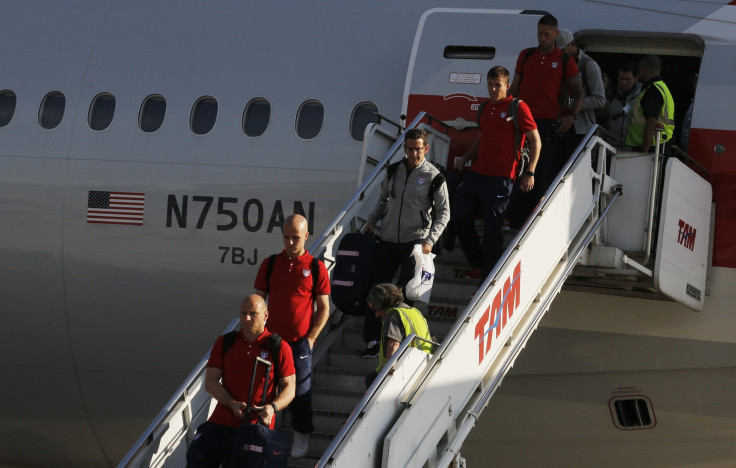Heavy Rain Expected To Dampen Spirits, Pitch At USA-Ghana World Cup Match

The United States was dealt a pretty rough hand for this year's World Cup, with its second and third matches against heavyweights Portugal and Germany.
But first the underdog American squad must attempt Monday evening to exact revenge on the tough Ghana national team, which beat them in the 2006 and 2010 World Cups. That would be a difficult enough task for the Yanks even in perfect weather conditions.
But the team's troubles are likely to be compounded by the whims of Mother Nature once the game begins at 6 p.m. Monday. The U.S.-Ghana match will be fought in Natal, a seaside town in Brazil's northeast, which experienced torrential downpours, flooding, sinkholes and landslides over the weekend. Natal was inundated with almost 13 inches since Friday, with nine inches falling there in the 24-hour period beginning at 8 a.m. Saturday, Brazil's government-run INMET weather agency reported. Dozens of buildings were destroyed, at least 50 people were evacuated, and the city government declared a state of emergency on Sunday, according to The Weather Channel.
Though the forecast for Monday does not call for quite that level of devastation, and the city's fire department expected life there to be largely back to normal in time for the match, TWC predicts that there is still a 70 percent chance of rain hitting Natal on Monday.
A wet playing surface can cause a range of problems for players, from increasing the chance of both minor and major injuries, to game delays and slower play as the ball and players get mired in the mud. But footballers often play in inclement weather conditions. In fact the Mexico-Cameroon match on Friday, one of the first showdowns of the 2014 World Cup, saw heavy rain as well that helped to dampen not only fans' moods and shoes, but also the score, which remained at 1-0 when the match came to a close.
© Copyright IBTimes 2024. All rights reserved.











